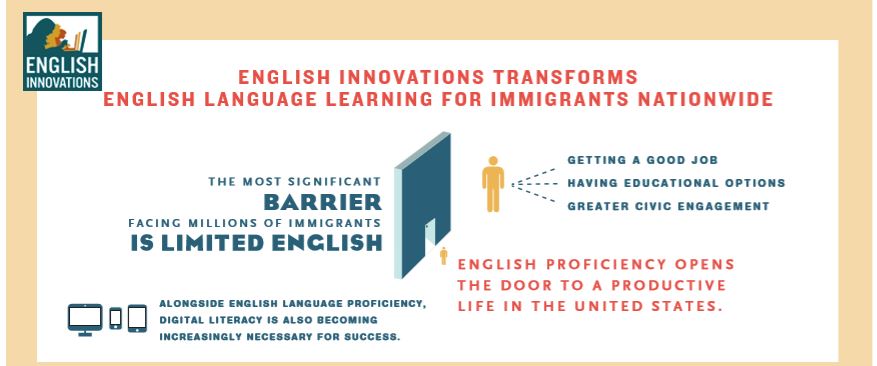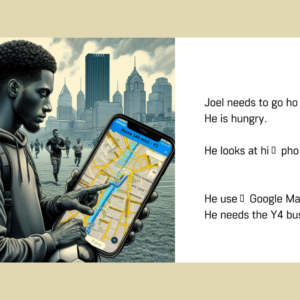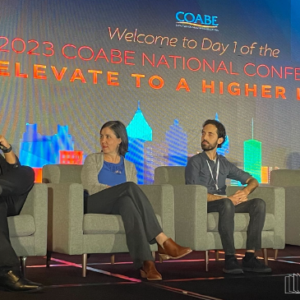By Heide Wrigley
English Innovations is a national model that blends in-class and out-of-class learning for adult English learners with high beginning levels of literacy and little time to spend in a formal adult ESL program. It is a 100 hour jump-start program operating in eight sites across the U.S. It acts as a springboard for further learning and ongoing engagement in the community.
I’ve been fortunate enough to be part of the English Innovations team from the beginning, first working with OneAmerica founder, Pramila Jayapal (then Executive Director, now in Congress), and her team to create a new blended model for teaching and learning that combines English acquisition with digital literacy and community engagement. As a team, we wanted to create a set of learning experiences for immigrants who had not yet found their way into the formal ESL system and needed opportunities not just to navigate “technology rich environments” but to express ideas, share their stories, and speak up for themselves and others (a shout out here to Elsa Auerbach and Andy Nash). We were of course lucky that the Bill and Melinda Gates Foundation believed in OneAmerica and invested in the model, including funding a pilot in Seattle and two years later continuing to support a national program with six sites across the U.S.
Over the six years that I have been involved, the focus on community engagement has deepened as community leaders and host sites share the work they do with students and invite them to participate in community action. Next year, there will be an even greater emphasis on “Know Your Rights” lessons and workshops for students, although the teaching of digital skills and English “to get things done” continues. Tech tools now include not just using email, Skype, PowerPoint, and Google Translate, but also DuoLingo and TinyCards inside and outside of class, and in some cases, WhatsApp.
The work on “Telling Our Story” also becomes broader as coaches and students are becoming more comfortable creating PowerPoint presentations with topics like My Life Before and Now or Memories of my Home Town. Students are learning to use editing tools to create videos to be shared with others; these in turn are uploaded by the coaches to social sharing platforms like Google Photo. In fall/winter 2017, we started introducing BioPoems, a strategy that lets even beginning students give voice to both their dreams and their fears and invited them to mention the contribution they make to others. To understand what BioPoems are all about and see a sample, read this newsletter (created by Sarah Miller of OneAmerica) that tells that story.
Heide Wrigley runs Literacywork International, a small research firm focused on education and training of adult immigrants and refugees. Through the years, she has worked with a number of technology oriented projects for adults, including TV 411 and We Are New York, both video series funded by the NYC Mayor’s Office; the Learner Web, developed by Portland State, and English Under the Arches, part of the McDonald’s Corporation national distance learning program. She also designed the content for an online course on Preparing English Learners for Career Pathways for OCTAEs ESL Pro initiative and is currently developing a number of webinars on the topic. Her ongoing work includes a long term consultancy with OneAmerica’s national English Innovations project, a blended learning model originally funded by the Bill and Melinda Gates Foundation. The model, implemented in 8 sites across the United States, integrates ESL, digital literacy and community engagement. She is a non-resident fellow with the Migration Policy Institute where she is part of a team exploring how language acquisition and technology can be combined to support immigrant integration.






2 Comments.
The content is really helpful & beneficial. Thank you for sharing the English Innovations learning.
Happy to hear! Thanks for reading.